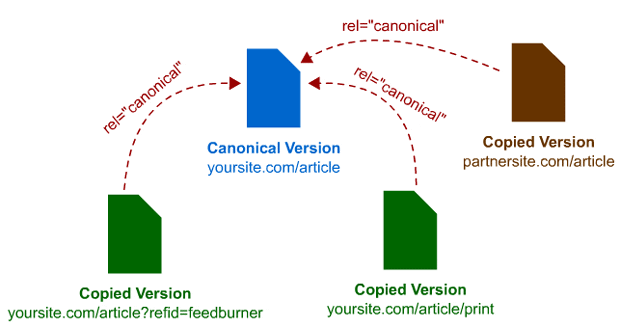Rel=”canonical” tags are used when duplicate content is present to let search engines (e.g. Google) know that the content on a page is not original by referencing the location of the original content.
Definition: A rel=”canonical” tag is a special tag that is inserted into the header of your HTML that tell the search engine bots which pieces of content are the original or primary ones and which are duplicates. This way the bot will pass over the duplicates and only index and give link credit to the primary piece.
In short, a re=”canonical” tag is used to tell Google that the content on a page is not original…it is copied from another source.
To be more specific, a cross domain re=”canonical” tag tells the search engine that the content on the page is from another website entirely.
Jeremy Koch, founder at Pertnear, launched TravelTell, a social media driven website which promotes vacation rental and real estate properties. TravelTell uses cross domain rel =”canonical” tags to protect the originality of the vacation rental manager’s (VRM) or real estate agent’s content, thereby giving credit for the content to the company who created it.
“The way we built our canonical tags is, after we add the link to the original property page to the listing, we automatically generate a rel=”canonical” tag giving credit to the original content,” said Koch. “So our content can be identical to the property management company without hurting their rankings.”
Most property management software systems include a field in the property screen for the property URL, In theory, any distribution outlet could use that URL in a rel=”canonical” tag to let Google know where the original content is located.
<link rel="canonical" href="http://www.https://www.sunrealtync.com/house/75-l"/>
If a VRM is pushing property descriptions from the software to a channel through an integration, then it is feasible that the distribution channel (e.g. FlipKey, HomeAway, etc.) could programmatically generate a rel=”canonical” tag so that the VRM’s website is credited for being the origin of the content. If channels chose to implement these tags, then the VRM’s search engine rankings would not be diminished by choosing to utilize distribution options.
Currently, most property management systems do not pass this information to a distribution channel (e.g. HomeAway, FlipKey) through their API.
To learn more:
By Amy Hinote


